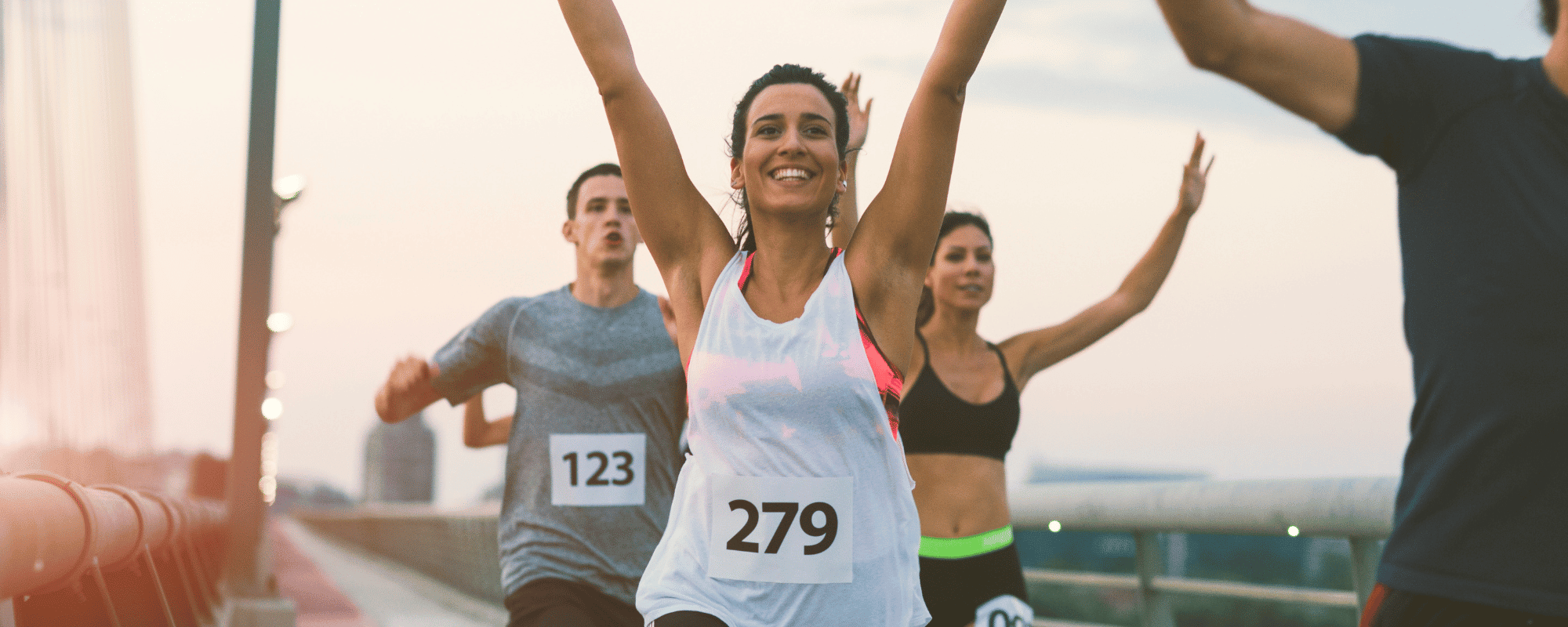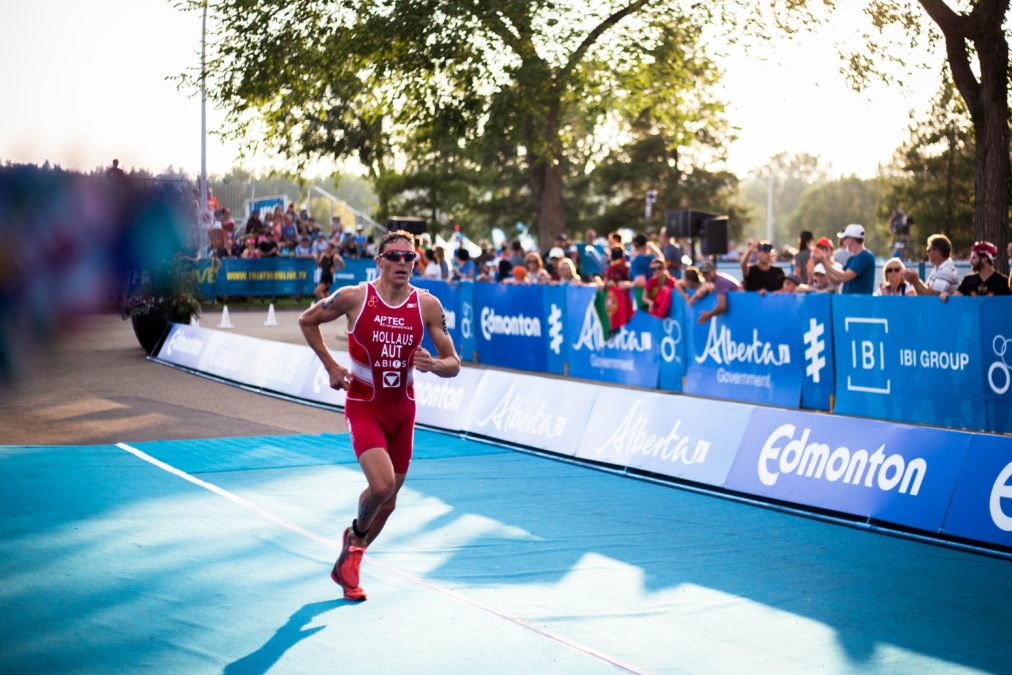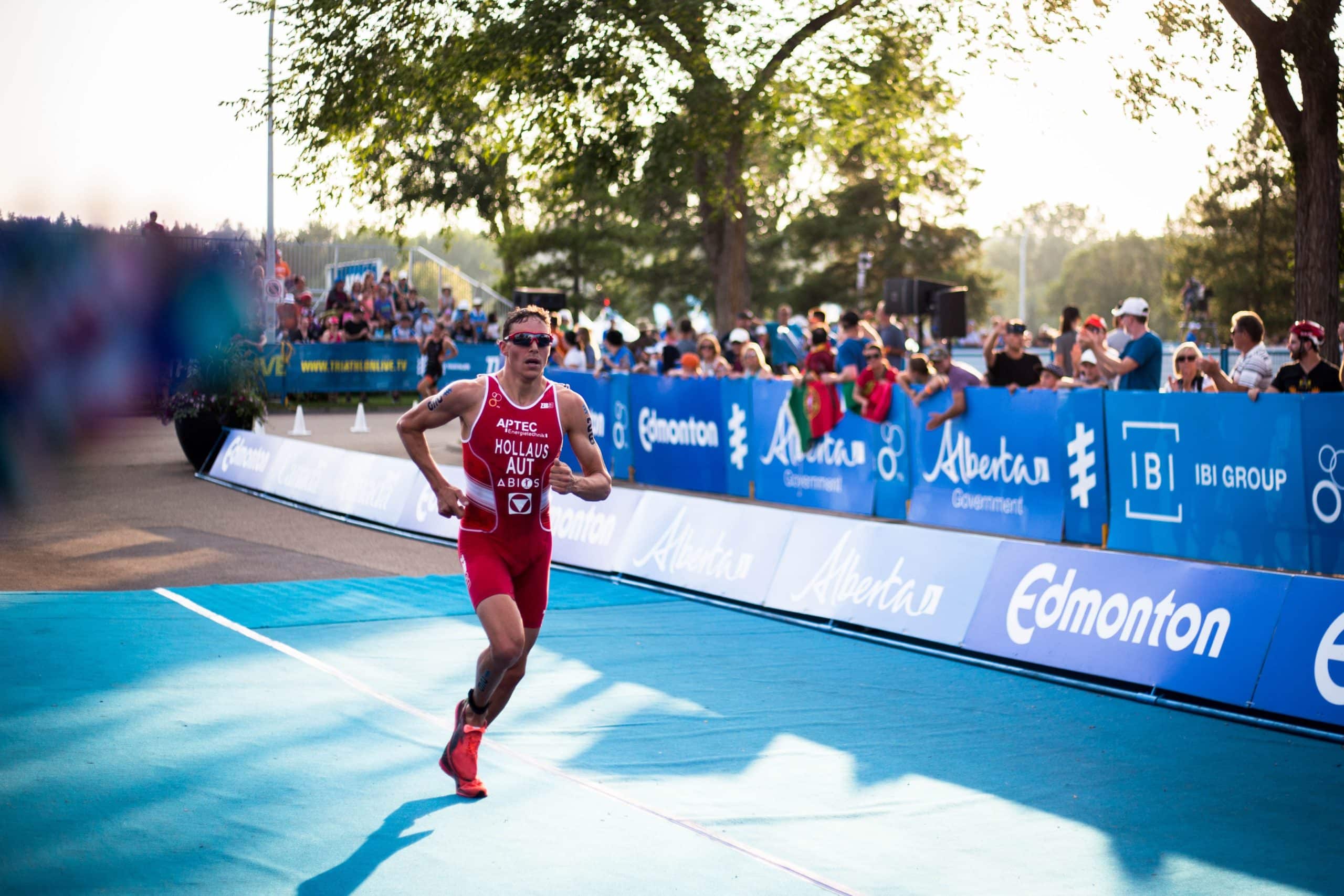Summary:
- Appropriate fueling and hydration are unquestionably the most important considerations for performing at your best when running a marathon.
- Caffeine and beetroot juice shots are two worthy nutrition aids to consider which may aid performance.
- Supplementing with anything must be practiced before race day
Gain a Performance Edge for the Marathon
In our marathon series articles so far we have discussed the key nutrition considerations when preparing for, performing in, and recovering from a marathon. This should be of particular benefit to those preparing for the upcoming Dublin marathon. As you now know, getting your nutrition strategy right is vital if you want to achieve your best possible time. Apart from pre-race fueling strategies, we are often asked by athletes if there is anything extra they can do to give them a performance edge. So, this week the focus switches to specific nutrition and supplement aids that can enhance performance in endurance events like distance running and marathons.
 If you do a quick online search for nutrition or supplement aids to boost exercise performance, you will come across countless hits with endless claims. Unfortunately the vast majority of these supplements don’t work, are unsuitable for endurance exercise, and are a waste of money. In terms of supplements having a direct performance benefit, the noted academic and sports nutritionist Prof. Ron Maughan has summarised it well with two general rules of thumb: first, if it really works, then it’s probably banned; second, if it’s not banned, then it probably doesn’t work. However, recent evidence suggests that there are some exceptions, but apart from following a well-structured carbohydrate loading and race-day fueling strategy, to my mind there are only two legal and credible nutrition aids that have been repeatedly shown to boost endurance exercise performance.
If you do a quick online search for nutrition or supplement aids to boost exercise performance, you will come across countless hits with endless claims. Unfortunately the vast majority of these supplements don’t work, are unsuitable for endurance exercise, and are a waste of money. In terms of supplements having a direct performance benefit, the noted academic and sports nutritionist Prof. Ron Maughan has summarised it well with two general rules of thumb: first, if it really works, then it’s probably banned; second, if it’s not banned, then it probably doesn’t work. However, recent evidence suggests that there are some exceptions, but apart from following a well-structured carbohydrate loading and race-day fueling strategy, to my mind there are only two legal and credible nutrition aids that have been repeatedly shown to boost endurance exercise performance.
Drum roll… If used correctly (i.e. in the appropriate dose and timing), caffeine and beetroot juice shots both offer highly-trained athletes a performance advantage. However, before you run out and buy them, if you are a novice runner, despite the proven benefits in numerous studies, they won’t help transform you into a gliding impala! Being well-fueled and hydrated should remain the priority in terms of your nutrition preparation.
 Carbohydrate Drink
Carbohydrate Drink
Previous articles in this series have emphasised that carbohydrate intake leading up to and during the marathon is paramount. No intervention will compensate for a lack of appropriate fuelling before the race, and you are likely to be reduced to walking pace at some point in the race. During the race, the intake of a suitable form of carbohydrate will help you to maintain blood sugar (glucose) levels, thereby preventing you from running out of fuel and fatiguing before the end of the race. Along with carbohydrate intake and a suitable hydration strategy, combining caffeine with carbohydrate has become increasingly popular with athletes as a means of boosting performance.
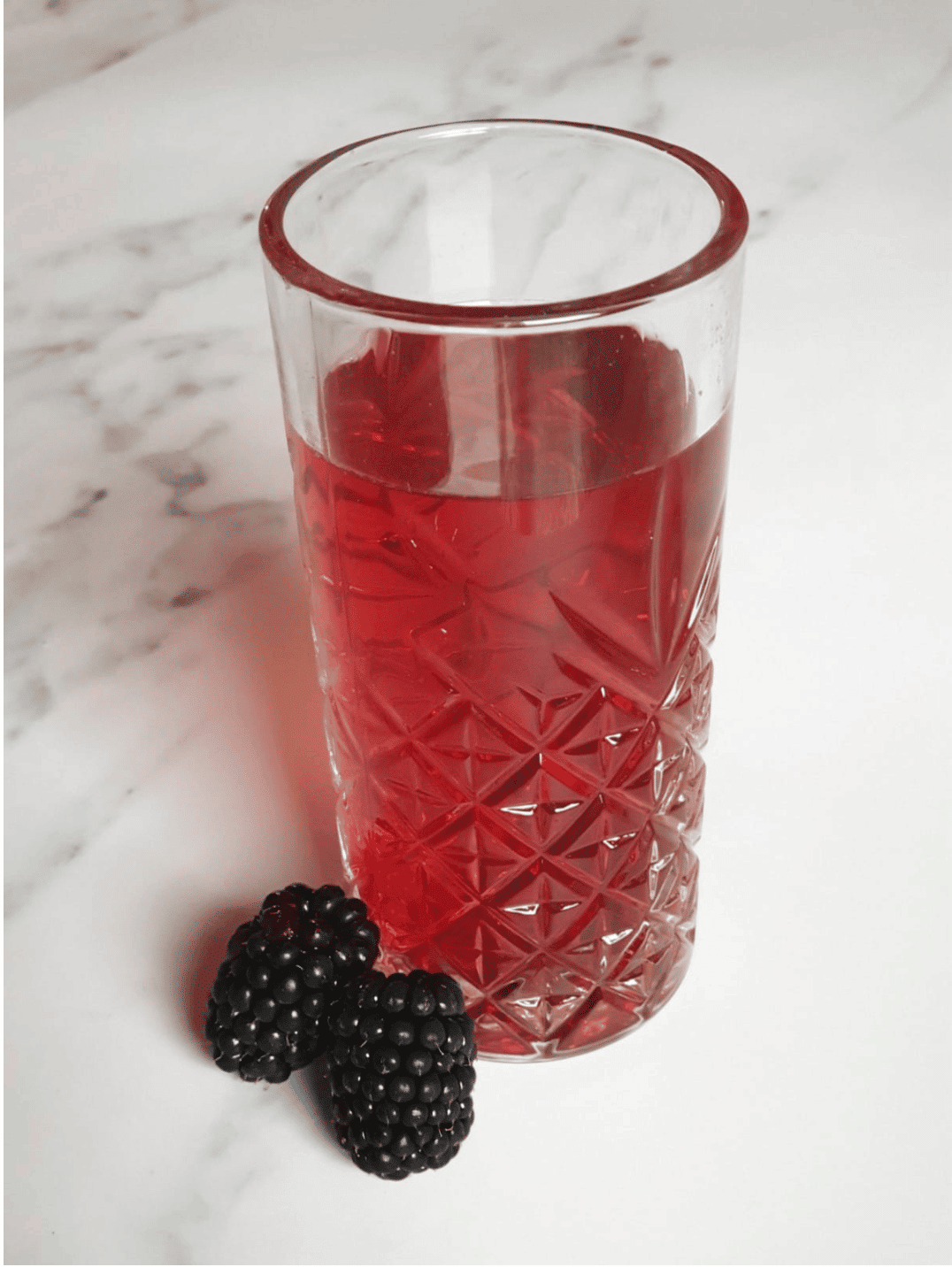 Why Caffeine?
Why Caffeine?
Caffeine has been consumed worldwide from many food and fluid sources for centuries. It is most often consumed from teas, coffee, chocolate and cocoa. Along with making you feel good and helping to give you a “lift” in the morning, this stimulant effect of caffeine can also boost exercise performance. Despite its presence of the WADA prohibited substances lists for a period of time (it was removed in 2004), athletes from a range of different sports have been using caffeine for decades to help them perform better in training and competition. Performance enhancement has been reported in exercise lasting as short as 60 seconds and as long as 2 hours, which makes it attractive to marathon runners.
The definitive mechanism by which caffeine improves performance has been subject to debate in the research community. Early studies suggested that caffeine spares the body’s stored form of carbohydrate (glycogen) by increasing the availability of fats as an alternative fuel source, meaning that you don’t burn your carbohydrate stores as fast and as a result don’t “hit the wall” as early. However, there are strong suggestions that many of caffeine’s effects are mediated through effects on the brain and neuromuscular system. For instance, caffeine enhances wakefulness, increases nerve excitability (which can improve the efficiency by which muscle contracts), may lower the perception of effort and reduces the sensation of pain during exercise. All of these factors contribute to slow the onset of fatigue and thereby help to boost athletic performance.
 The Right Source
The Right Source
Excluding coffee, there are a huge amount of caffeine-containing products now on the market for athletes to choose from. For reasons that are presently unclear, coffee, although somewhat effective, does not offer equivalent performance benefits as pure caffeine and for practical reasons might not be the most suitable pre-race fluid. Caffeinated sports drinks, caffeinated carbohydrate gels, caffeine tablets and caffeinated gums are more appropriate options. The source of caffeine you use depends on your personal preference. Some athletes may prefer a sports drink that doesn’t contain caffeine along with caffeinated gums for taste or to reduce the risk of stomach issues. Others may just use a caffeinated sports drink. Experimenting during training is extremely important to find what works for you.
How Much and When?
It is worth noting that a high daily intake of caffeine reduces the physiological response to caffeine – a phenomenon known as ‘habituation’. For this reason if you are a regular coffee drinker, then you should reduce your intake in the week leading up to the race to maximise the benefits when you then take it prior to the race running. The recommended intake of caffeine leading up to the race will depend on your weight, sensitivity to caffeine, habitual intake and of course personal preference. A minimum intake of 1 to 2 mg of caffeine per kg body mass is necessary to illicit a performance-enhancing response, but 3 to 6 mg of caffeine per kg body mass tends to optimum dose for performance. For an average sized male of 80 kg (12 ½ st.), this equates to 240-480 mg of caffeine, or roughly equivalent to 4 to 8 cups of coffee. In terms of timing, it takes roughly 45-60 minutes for caffeine levels to peak in the blood when consumed in tablet form or when mixed with carbohydrate. Starting to take your caffeinated sports drink roughly 30-40 minutes before exercise makes the most practical sense. However, caffeine is absorbed faster with caffeinated chewing gums as some caffeine is absorbed through the oral cavity. Chewing two sticks of caffeine gums (200mg caffeine) about 15 to 20 minutes before the race and sipping on a caffeinated sports drink throughout the race is another option. This way you are getting the three factor benefit of fluid, carbohydrate and caffeine during the race.
 Side-effects
Side-effects
Although there are undoubtedly performance benefits from using caffeine, the potential for side-effects should be mentioned. The side-effects of caffeine ingestion in these kinds of quantities include irritability, insomnia and jitters. At high doses, some people can suffer from stomach distress and heart palpitations. For this reason, runners should practice with small amounts and build-up to recommended performance-enhancing intakes stepwise over a few weeks especially in long training runs. Although there may be the perception that caffeine results in dehydration, there is no evidence to suggest this is the case in the context of the pre- and during race strategies we are suggesting. If for any reason you have any concerns about taking such doses of caffeine, ask your doctor for advice, or simply ignore caffeine altogether.
Beetroot Juice
Beetroot juice shots are suggested to have positive effects as a performance aid. Two concentrated shots of beetroot juice taken three hours before exercise can lower the oxygen cost of that exercise, which, in simple terms, means that an athlete can exercise harder at a lower energy cost. The suggested mechanism is that the cardiovascular system becomes more efficient at delivering oxygen to the muscle tissue, which changes the way that various energy systems work to provide energy during exercise. These shots can be purchased in most good health stores and supplement shops. Some athletes can find they slightly upset their stomach so this is something you should obviously practice in training before your big race day.
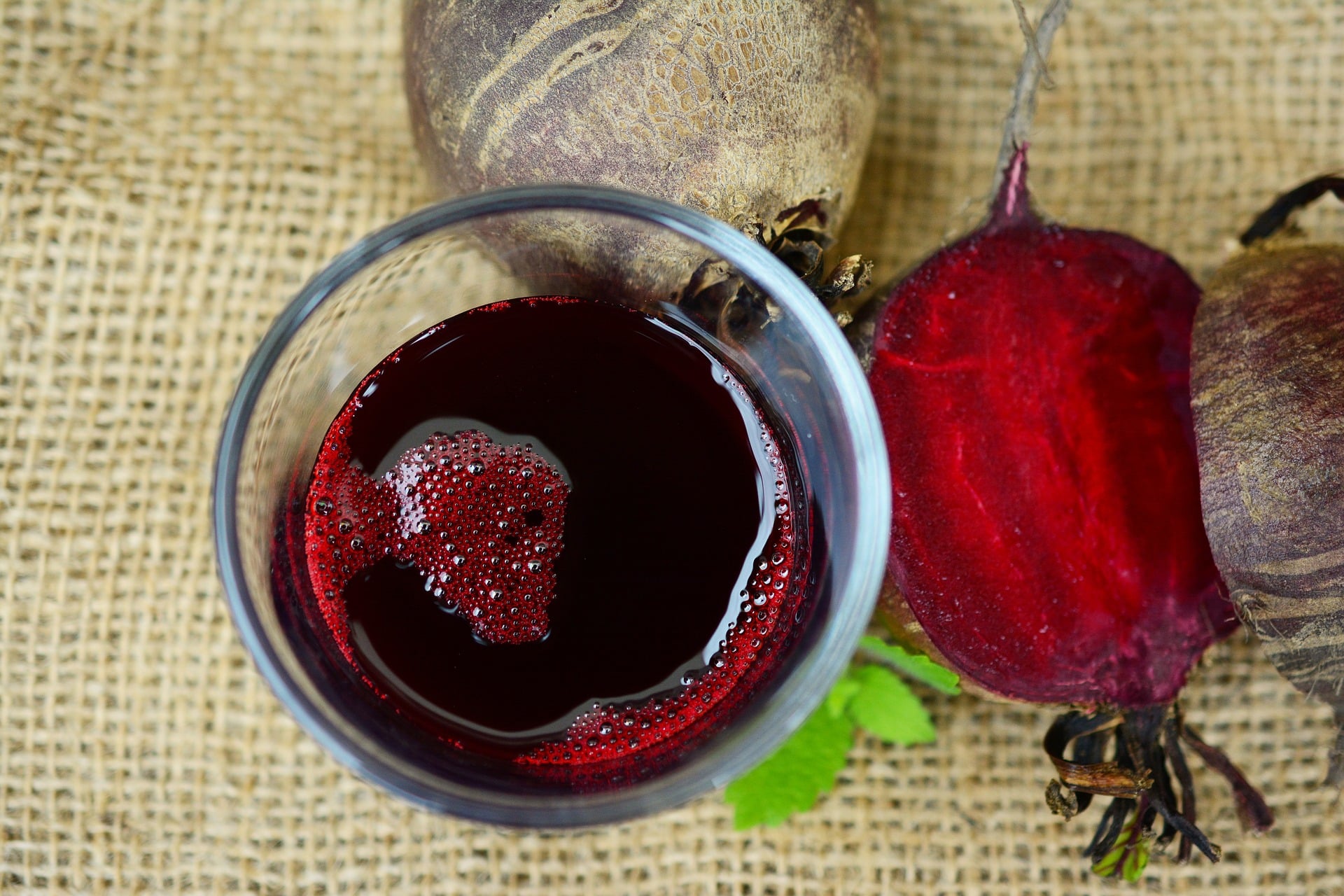 Summary
Summary
Appropriate fueling and hydration are unquestionably the most important considerations for performing at your best when running a marathon. Having taken care of those matters, and if you are looking for another performance edge, then caffeine and beetroot juice shots are certainly two worthy nutrition aids. Consuming suitable amounts of caffeine at the right time, combined with a carbohydrate sports drink during the marathon can offer the benefits of maintaining energy and hydration levels as well as reducing your perception of effort. Couple that with two beetroot juice shots at about 3 hours before the race and you will put yourself in the position of doing the best possible time you can achieve. Don’t forget to try these strategies before race day. The race will still be tough but at least you will have done all you can to prepare your body for the challenge, and you should take great confidence from that.
Eva, our performance dietitian, is running a ‘Fueling for a Marathon Webinar‘ on October 11th at 7:30pm, which will support and optimize your marathon nutrition to allow you to reach peak performance on race day! You can sign up here.
Check out the rest of our marathon series on our blog page.
If you would like more information or clarification on exactly what you should be doing in the lead up to and during the race, why not contact us for a consultation or plan for your race. Book in for a consultation here daveynutrition Clinic or email us for more information – aoife@daveynutrition.com.


